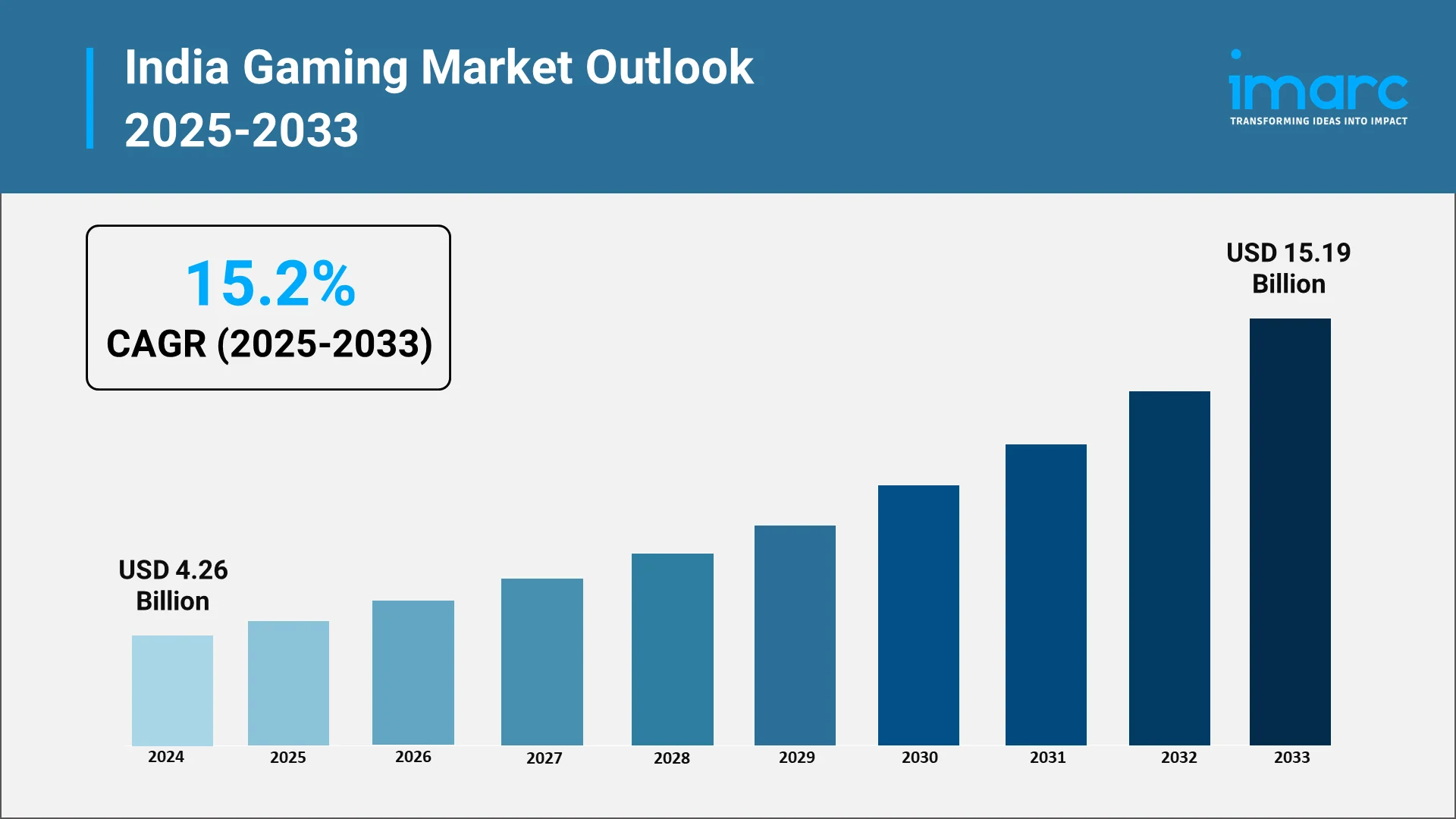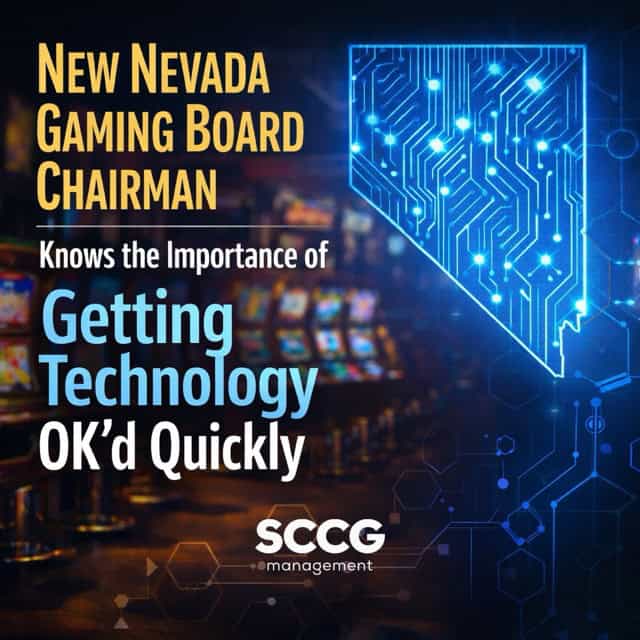Technology
Runway AI Levels Up: From Hollywood to Gaming!

Game On with AI: Runway’s Bold New Move
Last updated:

Edited By
Mackenzie Ferguson
AI Tools Researcher & Implementation Consultant
Runway AI, renowned for its cutting-edge video generation tools in Tinseltown, is diving into the gaming industry with an AI-powered consumer product launch scheduled for next week. The offering will initially include text and image generation, with video game creation capabilities slated for 2025. CEO Cristóbal Valenzuela is optimistic that this innovation will transform gaming development—just as it did in movies—by speeding up processes and improving creative output.
Introduction to Runway AI’s Expansion
Runway AI is poised for a momentous step forward as it announces its expansion into the gaming industry, building on its renowned success in the realm of Hollywood video generation. The company, celebrated for its state-of-the-art AI tools that have become a staple in film production, is now setting its sights on revolutionizing game development. This strategic move is marked by the upcoming launch of a pioneering consumer product designed to integrate AI in the form of text and image generation, with plans for full-fledged video game capabilities on the horizon for 2025. As Runway AI embarks on this new venture, its CEO, Cristóbal Valenzuela, envisions a transformative impact akin to the advancements witnessed in film production, where AI has significantly expedited development processes and enhanced creative outputs .
Background: Runway AI’s Achievements
Runway AI has firmly established itself at the forefront of the artificial intelligence industry with its innovative video generation tools, gaining prominence in the entertainment sector, particularly in Hollywood. Known for its cutting-edge technology, Runway has now set its sights on the gaming industry, aiming to replicate the impact it had on filmmaking by accelerating game development. According to The Verge, the company is launching a new consumer product that will initially feature text and image generation capabilities, with plans to include full-fledged AI-generated video games by 2025.
The gaming industry is eagerly anticipating the potential transformations that Runway AI’s technologies can deliver. By integrating its AI tools into game development, Runway aims to streamline the creative process, potentially cutting development times by up to 40%. Discussions are already underway with major gaming companies to explore opportunities for collaboration and innovation. The company believes that these advancements will not only enhance efficiency but also open up new realms of possibility for game design and storytelling.
Runway’s expansion into the gaming sector reflects a broader trend of AI’s growing role in various industries. As technologies become production-ready, the potential to revolutionize traditional workflows becomes increasingly apparent. Besides accelerating development, AI is expected to deliver more immersive and personalized gaming experiences, enhancing gameplay and supporting new business models. The implications of AI in the gaming industry are vast, with potential to redefine how games are developed, played, and monetized, as discussed in reports by Hartmann Capital.
While the excitement around AI in the gaming sector is palpable, it’s not without its challenges and controversies. Public reactions are divided, with many hopeful about the efficiency and creativity that AI can bring to game development, but others remain skeptical about Runway AI’s ability to deliver on such ambitious projects. Concerns include the possibility of creative homogenization and job displacement. Nonetheless, the potential economic and social benefits, such as lower development costs and enriched gaming narratives, continue to drive interest in the collaborative potential between AI and human creativity, as noted in DigitrendZ.
At the helm of this ambitious pivot is Runway AI’s CEO, Cristóbal Valenzuela, who envisions a future where the barriers between reality and virtual worlds blur, thanks to AI’s capabilities. Drawing parallels with AI adoption in the film industry, Valenzuela is optimistic about similar success in gaming. His commitment to keeping Runway independent reflects a desire for intellectual freedom and technological integrity. This strategic choice not only emphasizes Runway’s commitment to innovation but also positions it uniquely within the competitive landscape of AI technology firms, as reported by The Verge.
Runway AI’s New Product for Gaming Industry
Runway AI is poised for a transformative impact on the gaming industry with the launch of its new product designed for gamers. Known for its pioneering AI-powered video generation tools widely utilized by Hollywood studios, Runway AI is now extending its technological prowess into the realm of gaming. Scheduled for launch next week, the consumer product will initially offer features like text and image generation specifically tailored for gaming. Furthermore, the company has ambitious plans to introduce video game generation capabilities by the end of 2025 ().
Runway AI’s entry into the gaming sector signifies a strategic move to integrate its advanced AI technologies with popular gaming platforms. The company is actively engaging with major gaming companies to incorporate its technology and data insights, believing that their AI solutions can significantly accelerate the development process, much like their success in the film industry. CEO Cristóbal Valenzuela has expressed that AI could cut game development times by as much as 40%, fostering more dynamic and efficient development cycles. This aligns with the broader industry trend where AI is increasingly becoming a cornerstone of game development and design ().
The launch is not without its challenges, as Runway AI navigates a complex landscape of intellectual property rights and the rapid pace of technological advancement. While there have been talks with major players like Meta, Runway has opted to maintain its independence to pursue innovative pursuits driven by intellectual curiosity rather than corporate integration (). This decision echoes the company’s commitment to leveraging its AI capabilities to redefine game development paradigms, potentially leading to more personalized and immersive gaming experiences. However, there are concerns about the balance between innovation and the creative traditions of game design, highlighting the importance of carefully evolving alongside technological advancements.
Impact of AI in Gaming – An Overview
The advent of artificial intelligence in the gaming industry marks a transformative era characterized by unprecedented creativity and efficiency. A key player in this evolution is Runway AI, renowned for its advanced AI video generation technologies that have already made significant impacts in Hollywood. Now, Runway is venturing into gaming with plans to launch consumer products that initially feature text and image generation. This new initiative is part of a broader strategic pivot aimed at revolutionizing how games are developed and experienced (source).
Runway AI’s upcoming ventures into gaming are set to challenge traditional development paradigms. With their tools designed to streamline workflows and reduce production times, gaming companies can expect to see enhancements in both the creation and design processes. The potential for AI to accelerate game development—emulating its success in the film industry—offers a promising future for developers who are eager to adopt these cutting-edge technologies. Runway’s CEO, Cristóbal Valenzuela, envisions AI acting as a catalyst for sweeping changes, accelerating the pace of development while maintaining the creative integrity of game design (source).
The implications of AI-driven game development are extensive, with Runway AI poised to disrupt traditional industry models. While the potential for creating immersive, dynamic gaming experiences is highly promising, there are valid concerns regarding job displacement for current industry professionals as AI technologies automate routine tasks. However, the efficiency gains could lower barriers to entry for smaller studios, fostering an environment of increased creativity and innovation across the gaming landscape (source).
AI’s role in gaming also presents a range of socio-economic and political considerations that need to be addressed. As AI becomes more integrated into game development, issues surrounding intellectual property rights, creative ownership, and ethical content creation come to the forefront. Runway’s expansion into this domain will likely ignite discussions around these topics, as well as the broader implications of AI in media and entertainment (source).
Future of AI-Driven Video Game Generation
The advancement of AI-driven video game generation is proving to be a groundbreaking force within the gaming industry, as organizations like Runway AI embark on transforming how games are conceived and developed. Renowned for their AI video generation capabilities in Hollywood, Runway is now venturing into gaming by launching a consumer-targeted product next week. This product will initially focus on text and image generation, with plans to expand into full video game generation by the end of 2025. Their innovative approach is not only a testament to the versatility of AI but also highlights a trend where the boundaries between creative industries are becoming increasingly blurred. This initiative could pave the way for creating highly immersive, personalized gaming experiences where the narratives and environments adapt in real-time, offering players dynamics that were previously unattainable with traditional game development methods ().
Runway’s CEO, Cristóbal Valenzuela, suggests that the adoption of AI in gaming can significantly accelerate game development, reducing the time and resources needed to bring new games to market. Drawing comparisons with AI’s successful integration in film production, Valenzuela envisions similar technological advances in gaming. This could revolutionize the industry by streamlining development processes and allowing for more complex and expansive virtual worlds. Furthermore, by staying independent, Runway aims to explore untapped intellectual territories without the constraints of larger corporate entities, positioning themselves as pioneers in AI-augmented game creation ().
The future of AI-driven video game generation also raises intriguing prospects for collaborations between AI developers and gaming companies. Runway’s ongoing discussions with various gaming firms reflect a burgeoning interest in integrating AI technologies into game development pipelines. This partnership could potentially democratize game development, enabling indie developers to leverage the same AI tools used by larger studios, thereby fostering a more diverse gaming ecosystem. However, these developments also pose questions about job displacement, as AI capabilities might reduce the need for certain roles traditionally involved in game development ().
Despite the excitement around AI’s potential to transform gaming, there are concerns. Critics argue that AI could lead to a homogenization of games if developers rely too heavily on AI-generated templates. Moreover, as AI begins to handle more creative tasks, questions about originality and creative ownership arise, alongside ethical considerations regarding bias and data use in AI training. Legal challenges, particularly around intellectual property rights, are likely to emerge, requiring updates to current laws to accommodate AI-created works ().
Public reception of AI in gaming is mixed. While some embrace the potential for innovation and efficiency, others are skeptical of lofty promises and cautious about how AI might alter the fabric of game creation and player experience. The market’s response will largely determine the trajectory of these technologies, as consumers weigh the allure of new gaming experiences against the possible loss of the human touch in game design. Regardless of the varying opinions, there’s no denying that AI is on the cusp of becoming an integral part of the gaming industry’s evolution, promising a future where digital entertainment continuously adapts to player preferences and societal trends ().
Challenges and Opportunities in AI Game Development
The integration of artificial intelligence in game development presents a landscape of both challenges and opportunities. Runway AI’s foray into this sector highlights the transformative potential of AI, as its tools, previously utilized by Hollywood studios, are now being adapted for gaming. This expansion is expected to introduce innovative approaches to game creation, allowing for accelerated development timelines and enhancing creative possibilities. As Runway prepares to launch its AI-driven gaming products, starting with text and image generation features, the company is positioned to offer significant contributions to the way games are developed (https://www.theverge.com/ai-artificial-intelligence/694531/runway-ai-video-games-generate).
However, the path to integrating AI into game development is fraught with challenges. A primary concern is the potential displacement of artists and designers, as AI tools automate tasks traditionally performed by humans. The industry’s ability to adapt to these changes will be crucial in addressing these economic and social concerns. This adaptation might result in more accessible development processes for smaller studios, reducing costs and fostering creativity, but it also risks creating a homogenized creative output if not balanced properly (https://www.theverge.com/ai-artificial-intelligence/694531/runway-ai-video-games-generate).
Another challenge is ensuring the authenticity and ethical integrity of AI-generated content. Issues of algorithmic bias and the ownership of AI-created work raise questions that the industry must address to maintain credibility. Additionally, intellectual property rights may require reevaluation, as the integration of AI-generated content risks blurring the lines of traditional copyright protection. Runway’s experience with legal challenges related to copyrighted material used in AI training illustrates these complications (https://www.theverge.com/ai-artificial-intelligence/694531/runway-ai-video-games-generate).
Opportunities abound as well. AI has the potential to personalize gaming experiences, making them more immersive and dynamic. By integrating AI models into game engines, developers can craft more responsive and adaptable gaming environments. Runway AI’s innovative tools offer the promise of revolutionizing the gaming sector by significantly improving efficiency and creativity. This ambition aligns with CEO Cristóbal Valenzuela’s vision, as he anticipates that AI will rapidly accelerate game development, much like its impact on film production (https://www.theverge.com/ai-artificial-intelligence/694531/runway-ai-video-games-generate).
Lastly, the industry must navigate the political implications of AI in gaming. With the concentration of technological power in a few companies, antitrust concerns could arise, alongside potential misuse of AI technologies for purposes like deepfakes or misinformation. As Runway AI continues its expansion, the development of new legal frameworks to oversee and manage these emerging challenges and impacts will be critical in ensuring a balanced and fair gaming ecosystem (https://www.theverge.com/ai-artificial-intelligence/694531/runway-ai-video-games-generate).
Runway AI’s Vision and Industry Impact
Runway AI is poised to redefine the gaming industry with its innovative applications of artificial intelligence. Known for its prowess in AI video generation, particularly within Hollywood, Runway AI is now venturing into the gaming sector with the launch of a new consumer product. This product will initially focus on text and image generation, with plans to expand into video game generation by 2025. The integration of AI in gaming promises to revolutionize game development by significantly accelerating the process, akin to its transformative impact on film production. With discussions already underway with leading gaming companies, Runway AI is eager to deploy its technology to enhance gaming experiences, foster creativity, and streamline production timelines .
The potential impact of Runway AI’s entry into gaming extends well beyond mere technological advancement. CEO Cristóbal Valenzuela predicts that AI will speed up the development cycle by up to 40%. This could democratize game development by reducing the cost and time barriers for smaller studios, thereby enabling a more diverse range of games in the market. However, this shift is not without its challenges, as concerns over job displacement for artists and designers and the creative limits of automated tasks loom large. Runway’s determination to remain independent—a choice highlighted by its rebuffed acquisition talks with Meta—underscores its commitment to pioneering unique intellectual challenges .
The societal implications of Runway AI’s innovations are equally significant. As AI becomes a staple in game development, the potential for creating more immersive, personalized experiences arises. Content that adapts dynamically to the player could redefine what it means to engage with a video game, though this also raises critical questions about the authenticity and ownership of such content. The emergence of such technology necessitates careful consideration of ethical issues, particularly in terms of algorithmic bias, which could affect representation and fairness in AI-generated narratives .
Politically, Runway’s foray into gaming technology brings its own set of challenges. Intellectual property rights could become a contentious arena, especially considering Runway’s previous legal battles over copyrighted material used in AI training. The nature of AI-generated content challenges traditional understandings of copyright, potentially requiring a reevaluation of existing legal frameworks. Additionally, the expansion of AI technology into gaming raises concerns over the concentration of power. The dominance of a few major players in the AI space, including the potential for misuse like deepfakes, emphasizes the need for regulatory oversight to ensure ethical standards and competition are maintained .
Public Reactions and Diverse Opinions
The public’s reaction to Runway AI’s entry into the gaming industry is decidedly multifaceted. On one hand, there’s a wave of positive sentiment among gaming enthusiasts and developers who are optimistic about how AI might revolutionize game development processes. This group envisions a future where AI-driven tools streamline workflows, significantly reducing production time while enhancing the creative capabilities of developers. The excitement is palpable among those who believe AI can accelerate innovation, allowing developers to tackle more ambitious projects and achieve results more swiftly than ever before. Publications like DigitrendZ highlight such optimism, suggesting that AI’s transformative potential could signify a new era of gaming development.
However, not all reactions are filled with enthusiasm. A segment of the public expresses skepticism, questioning whether Runway AI can deliver on its ambitious promises. Some perceive the company’s foray into gaming as a case of being ‘late to the game,’ raising doubts about its ability to compete with established players already utilizing AI technologies. Concerns are also voiced regarding Runway’s attention—or lack thereof—to user feedback, as well as the perceived limited scope of the initial products being offered. These sentiments are echoed in discussions on platforms like Reddit, indicating a mixture of excitement and wariness within the community.
The Broader Economic and Social Implications
The expansion of Runway AI into the gaming industry highlights its potential to significantly alter both economic and social landscapes. By lowering development costs and reducing timelines, Runway’s AI tools could democratize access to game development. This, in turn, may enable smaller studios to compete with established industry giants by producing innovative and high-quality games at a fraction of the cost . However, this technological shift also points to possible job displacement for artists and designers, raising concerns about employment sustainability and creative industry evolution .
Socially, the integration of AI in gaming could lead to enriched player experiences through personalized content and dynamically evolving game narratives. This potential for immersive storytelling using AI-driven customization offers gamers more engagement and replayability . However, questions arise concerning the authenticity of these experiences, especially when AI systems generate content autonomously. Moreover, ethical issues regarding algorithmic bias could lead to unfair or unbalanced gameplay, challenging developers to address inclusivity and fairness in AI-driven environments .
Politically, Runway’s technological expansion into gaming suggests a re-examination of intellectual property rights as AI-generated content becomes more prevalent. With previous legal battles over copyrighted material used in AI training, the future of AI in gaming might demand new legal frameworks to define ownership and rights . In addition, the growing influence of companies like Runway could prompt antitrust scrutiny, especially as AI capabilities could be misused for creating deepfakes or spreading misinformation. The combination of these factors suggests that substantial legal and political discourse will be necessary to govern the future of AI in the creative industries .
Legal and Political Considerations of AI in Gaming
The intersection of artificial intelligence (AI) and gaming is not merely a matter of technical advancement but also a complex arena of legal and political challenges. As AI technologies like those developed by Runway AI advance into the gaming industry, key legal concerns revolve around intellectual property rights. With AI’s growing ability to generate content, often learned from vast datasets, questions arise about the ownership of generated outputs and the potential misuse of copyrighted material during AI training. This was evidenced by past legal challenges faced by Runway, highlighting the need for new legal frameworks to address these novel challenges. As gaming companies and AI developers navigate these legal waters, robust agreements and careful considerations regarding data usage and intellectual property will become paramount to ensure innovation is legally sound [1](https://www.theverge.com/ai-artificial-intelligence/694531/runway-ai-video-games-generate).
Politically, the move of AI into gaming is poised to impact regulatory landscapes significantly. The concentration of power in tech giants like Runway hints at possible antitrust issues, especially as these companies become pivotal in shaping future media landscapes. Moreover, the potential for AI misuse in gaming, whether through creating deepfakes or spreading misinformation, calls for careful monitoring and regulation to protect consumers and maintain fair industry practices. As AI reshapes the digital entertainment sector, policymakers will need to establish clear guidelines that balance innovation with public interest and security. This regulatory environment will likely evolve as AI becomes more entrenched in gaming markets [1](https://www.theverge.com/ai-artificial-intelligence/694531/runway-ai-video-games-generate).
The impact of AI on the gaming industry extends beyond legal frameworks, touching on broader societal concerns about job displacement and cultural homogenization. As AI automates parts of game development traditionally reserved for artists and designers, there are fears about job losses in these creative fields. However, proponents argue that AI can serve as a tool for enhancing creative productivity, enabling developers to craft more intricate and engaging gaming experiences. These shifts may require companies to rethink workforce strategies, potentially focusing on retraining and upskilling to adapt to an AI-enhanced development landscape [1](https://www.theverge.com/ai-artificial-intelligence/694531/runway-ai-video-games-generate).
Discussion surrounding AI in gaming also encompasses social considerations about authenticity and creative ownership. The capability of AI to personalize gaming experiences introduces ethical questions about ownership and the authenticity of algorithmically-generated narratives. As AI starts to weave more dynamic and personalized stories within games, the distinction between human and machine creativity may blur, challenging our traditional notions of authorship. Addressing these philosophical questions will be essential in securing the societal acceptance of AI-enhanced gaming [1](https://www.theverge.com/ai-artificial-intelligence/694531/runway-ai-video-games-generate).
The legal and political landscape concerning AI in gaming is as dynamic as the technology itself. The initial excitement surrounding AI offers vast opportunities but also calls for scrutiny and deliberation regarding its broader impacts. As developers and policymakers engage with these emerging legal and political challenges, their efforts will be critical in shaping a future where AI technologies enrich, rather than undermine, the gaming industry [1](https://www.theverge.com/ai-artificial-intelligence/694531/runway-ai-video-games-generate).
Technology
High-Performance Monitor Lineups : HKC Corporation

HKC Corporation’s showcase is anchored by the introduction of several flagship products. The HKC M10 Ultra is promoted as the first monitor to utilize an RGB MiniLED backlight system for enhanced color and brightness control. It would appeal to professional graphic designers, video editors, and game developers. The KOORUI S4941XO is a large-format OLED screen with a high refresh rate aimed at immersive simulation gaming. Finally, the ANTGAMER ANT275PQ Ultra stands as an LCD monitor with an exceptionally high refresh rate for competitive esports.
Collectively, HKC Corporation’s display products demonstrate the company’s technical focus on advancements in panel construction, backlight engineering, and integrated image processing software.
Image Credit: HKC Corporation
Technology
Innovative Gaming Peripheral Ecosystems : gaming peripheral

At CES 2026, Akko calls attention to three distinct series — the Nest, the Dash, and the Framer. The brand highlights the Dash as its “most advanced mouse to date.” This computer peripheral weighs just 39 grams and boasts the PixArt 3950 sensor for ro-grade precision and stability. Nest, on the other hand, is a right-hand ergonomic style, while the Framer is for entry-level gaming.
In addition to the high-performance computer mice, Akko is also highlighting new keyboards — including the aluminum rapid assembly magnetic-switch keyboard MOD007v5 HE and the Year of the Snake Keyboard — as well as the M1 V5 TMR technology by Akko’s sister brand MonsGeek.
Image Credit: Akko
Technology
Gambling Industry Trends And Predictions For 2026


Gambling Industry Trends and Predictions for 2026
The global gambling industry enters 2026 on a rapid growth trajectory and at the cusp of transformative change. After reaching an estimated $99 billion in 2024, the global betting and gaming market is projected to nearly double by 2033 (approaching $182 billion) as digital platforms, mobile betting, and AI-driven innovations reshape how people gamble. This boom is fueled not only by technological leaps, but also by evolving consumer behaviors and shifting regulatory landscapes. By 2026, the industry will be more connected, data-driven, and consumer-focused than ever, blurring the line between gambling and broader digital entertainment.
Global Focus, Local Moves: North America and Europe currently dominate gambling revenue (about three-quarters of the market), but Asia-Pacific and Latin America are emerging as the next frontiers. In particular, Asia-Pacific’s liberalizing regulations, rising incomes, and mobile adoption are accelerating participation across the region. At the same time, the United States – which ignited a sports betting boom after 2018 – continues to expand state-by-state. Meanwhile, Europe’s mature markets are prioritizing sustainability and responsibility, and Latin America and Africa are opening up new opportunities. Across the world, stakeholders are “going all-in” on innovation and expansion, while bracing for greater oversight to ensure gambling grows safely.
In this outlook for 2026, we highlight the key trends shaping the iGaming (online gambling) sector and its convergence with traditional brick-and-mortar casinos. From new markets and regulations to tech breakthroughs and changing player expectations, the year ahead promises high stakes and big opportunities.
New Markets and Regulatory Shifts on the Horizon
Legalization Wave Continues
The map of regulated gambling is set to expand further in 2026. Several countries and jurisdictions are transitioning from gray markets to fully legal, competitive industries. Notably, Brazil – long considered a “sleeping giant” of gaming – is rolling out regulations for online sports betting and casino gaming, creating one of the world’s largest new markets. In Europe, Finland has decided to end its state monopoly and move toward a competitive licensing model by 2026, opening its lucrative market to private iGaming operators. These moves follow the trend of governments seeking tax revenue and consumer protection through licensing rather than prohibition.
United States Focus
In the U.S., the sports betting frenzy that spread to 35+ states is settling into a mature phase, but there are still holdouts and new opportunities. Major states like Texas and California remain unresolved – Texas lawmakers are weighing another push for sportsbooks (though realistically not before 2027) and California’s tribal vs. commercial interests make legalization challenging. Still, the pressure is mounting as Americans in nearly every region have gained access to legal betting.
Meanwhile, online casino gaming (iGaming) – currently legal in only seven states – is gaining traction. In 2025, multiple U.S. states saw legislative efforts to legalize online casinos, eyeing the success of pioneers like New Jersey, Michigan, and Pennsylvania. The record-breaking revenues reported by existing iGaming states underscore the opportunity: several markets have posted all-time monthly records, and year-over-year growth in iGaming has significantly outpaced growth in brick-and-mortar casinos. This momentum is likely to push more U.S. states to consider regulating online casinos in 2026 and beyond, especially as they watch neighbors reap tax windfalls.
Stricter Rules and Compliance
As new markets open, regulators everywhere are also tightening the rules in existing markets. Governments in major jurisdictions are introducing tougher measures for consumer protection, anti-money-laundering (AML), and advertising. The United Kingdom’s regulatory overhaul is a prime example – from stricter ad guidelines to potential online slot stake limits and affordability checks, UK operators face a more controlled environment. Other countries have gone so far as to heavily restrict or ban gambling advertising. Across Europe, compliance is king: the era of “grey area” operations is fading as authorities push operators to either go fully legal or get out.
In the U.S., regulators are aggressively enforcing rules to ensure a safe market. Several states have intensified enforcement against unlicensed platforms, increased cease-and-desist activity, and introduced new rule updates emphasizing tighter licensing standards, identity verification, AML protocols, and mandatory responsible gambling tools. This reflects a broader North American trend: as the online market matures, regulators are shifting from simply enabling new industries to rigorously policing them for compliance and strengthening player protections.
Tax and Policy Changes
Policymakers are also adjusting the financial rules around gambling. In the U.S., a notable change takes effect in 2026: recreational gamblers will lose a portion of their tax deductions on losses, with federal law capping deductible losses at 90% of winnings (down from 100%). This tax tweak may discourage some high-volume bettors or at least complicate their accounting. At the same time, U.S. reporting thresholds for certain jackpots have been modernized in recent years, reflecting a slow but steady effort to update outdated compliance burdens.
Overall, 2026’s regulatory landscape will be defined by expansion paired with vigilance: more markets opening up and more scrutiny to ensure gambling growth comes with strong consumer safeguards. Next, we look at one of the most intriguing regulatory battles brewing – the clash between traditional gambling operators and a new breed of betting platform known as prediction markets.
A major storyline heading into 2026 is the rise of prediction markets and their collision with traditional sports betting. Once a niche idea, prediction markets allow users to wager on practically any real-world outcome – from elections and economic indicators to pop culture outcomes – treating events like stocks to be traded. In the past two years, this segment expanded rapidly in the United States, blurring the line between gambling and financial trading. A growing roster of platforms has launched or gone mainstream, and major sports and gaming brands are experimenting with prediction-style products.
This flurry of innovation points to demand for new forms of interactive wagering. Younger bettors especially enjoy the stock-market-like experience of trading event outcomes, and volumes have surged across several platforms. These numbers have not gone unnoticed by the traditional gaming industry – or by its regulators.
Regulatory Crossfire
Prediction markets currently operate in a legal gray area in the U.S., often falling under federal commodities oversight rather than state gambling law. This has triggered backlash from established gambling stakeholders who argue these products resemble sports betting without the same level of licensing, consumer protection, and responsible gaming guardrails.
On the other side, prediction market companies and allied fintech firms are organizing and pushing for clearer frameworks that legitimize these markets nationwide. They argue that the legal system hasn’t kept pace with modern products, and that a patchwork of rules will create confusion and drive demand to offshore alternatives. The stage is set for a significant confrontation in 2026: federal regulators vs. state gaming authorities, and innovative platforms vs. incumbent casino and sportsbook ecosystems.
Why This Matters in 2026
Whether prediction markets are integrated into the regulated gaming system, restricted, or forced into separate lanes will shape everything from taxation and consumer protections to how sportsbooks innovate. The industry may be moving toward a reality where traditional operators either (1) partner into this category, (2) fight it aggressively, or (3) watch parts of wagering demand shift outside classic sportsbook rails. The outcome won’t just impact the U.S.; it will influence global regulators as they face similar fintech-gambling convergence pressures.
The Great Convergence: Merging iGaming with Brick-and-Mortar Casinos
The year 2026 will also highlight the convergence between online and land-based gambling, often dubbed the “omnichannel” approach. While online iGaming is booming, traditional physical casinos are not standing idle – many are leveraging technology and cross-platform strategies to stay relevant and connected to digital audiences. The central question for casino operators has become: How can we integrate the on-site casino experience with online play?
Omnichannel Strategies
Some forward-thinking casino companies are embracing hybrid innovations that turn brick-and-mortar resorts into content engines for digital channels. New live dealer concepts, broadcast-style casino content, and in-property studios are becoming a real strategy: they extend a casino brand beyond physical walls while turning on-site foot traffic into marketing reach.
Another critical driver of convergence is the integration of loyalty programs and currencies across channels. Big operators are linking loyalty points so that players earn and spend rewards whether they’re at a slot machine in Vegas or betting on an app at home. Increasingly, these rewards behave more like digital ecosystems than simple points programs. Over time, this may evolve toward a portable digital identity where engagement across sportsbook, casino, social gaming, and entertainment can be recognized and rewarded holistically.
Physical Casinos Go Digital
Brick-and-mortar casinos are also adopting more digital infrastructure: cashless wagering options, mobile wallets, app-driven player experiences, and increasing experimentation with biometrics for identity and loyalty recognition. These upgrades align with younger customers’ expectations and help casinos enhance operational efficiency while reducing certain fraud and compliance risks.
It’s worth noting that not all casino operators are on board. Some U.S. regional casino companies and tribal stakeholders remain cautious, citing cannibalization concerns and social impacts. Still, the broader revenue picture continues to pressure the industry toward convergence, especially as online channels deliver faster growth and higher scalability.
The “Phygital” Casino Experience
In 2026, expect to see more crossover initiatives that make gambling an anytime, anywhere activity. The convergence is also evident in content: casino games increasingly borrow features from video games (missions, rewards loops, community events), while physical casinos adopt attractions influenced by digital culture. For operators, the strategic advantage goes to whoever can unify experiences across platforms while respecting the regulatory and responsible gaming frameworks required in each market.
Tech Innovations: AI, Apps, and Immersive Betting
Technology has always been a driving force in iGaming, but heading into 2026, it’s clear the industry is entering another innovation cycle. Several tech trends are set to redefine how gambling products are built and how players engage:
Mobile 2.0 – Faster and More Immersive
Mobile betting is the primary channel for many consumers, and in 2026 mobile platforms are leveling up. Expect smoother UX, deeper personalization, more embedded live content, and early-stage applications of AR to create more immersive experiences. The smartphone is not just a portal to betting anymore; it’s becoming the interface layer for entertainment, payments, community, and identity.
Artificial Intelligence Everywhere
AI has moved from experimentation to operational core. It is now embedded in risk management, fraud detection, dynamic promotions, personalization, customer support, and even content generation. The next stage in 2026 is “industrialized AI”: measurable ROI, tighter governance, and clearer outcomes. In regulated markets, AI will increasingly be paired with compliance expectations – including systems designed to detect problem gambling behaviors earlier and deliver better interventions.
Fintech and Payments Innovation
Payments are becoming a strategic battleground. Open banking capabilities, faster payouts, improved fraud detection, and easier onboarding are changing player expectations. In parallel, crypto rails remain relevant, especially for international markets and certain user segments. For regulated operators, the key is not crypto hype, but crypto’s utility: faster settlement, transparent transaction trails, and optionality for global payments where traditional banking remains restrictive.
New Game Formats – eSports, Virtuals, and Microbets
New formats continue to expand the addressable audience. eSports betting is growing, virtual sports offer always-on wagering, and micro-betting is becoming a major engagement driver as operators refine the latency, data feeds, and in-play UX that this product demands. Major global sporting events in 2026 will likely accelerate micro-betting adoption as consumers learn to treat a match not as one bet, but as dozens of moment-to-moment decision points.
Gamification and Social Play
Gamification is now a baseline expectation in modern apps: missions, rewards, leaderboards, community challenges, and social layers that borrow heavily from video games. Meanwhile, streaming culture continues to collide with iGaming, as content creators, live casino formats, and interactive “watch and play” mechanics become more common acquisition channels. As these experiences scale, expect regulators to sharpen the rules around marketing, affiliate behavior, and ensuring responsible gaming protections extend into creator-led environments.
Cybersecurity and Reliability
As platforms scale, cybersecurity becomes existential. Attacks, phishing, and platform reliability issues can quickly damage trust. In 2026, regulators and major partners will increasingly treat security readiness and resilience as non-negotiable. Operators will invest further in multi-cloud uptime strategies, monitoring, and stronger identity protections to ensure stable, compliant operations at scale.
Responsible Gambling and the Social License
Amid all the growth and innovation, the industry in 2026 is putting a sharper focus on responsible gambling (RG). As gambling becomes more accessible digitally, the expectations rise: operators must prevent harm, regulators must protect consumers, and stakeholders must prove that industry growth can be sustainable.
Real-Time Intervention
One of the most important evolutions is the use of AI and behavioral analytics to detect harmful patterns earlier. Instead of relying solely on players to self-report or set limits, modern systems can identify risk signals and trigger interventions such as dynamic messaging, cooling-off prompts, or structured friction in the user journey.
Mandatory Measures and Culture Change
More jurisdictions are tightening requirements: deposit and time limits, self-exclusion enforcement, clear loss/win displays, enhanced KYC checks, and more robust proof-of-source-of-funds rules in higher-risk cases. The direction is clear: responsible gambling is no longer optional, and the companies that build it into product design will find it easier to keep market access, maintain brand trust, and partner with mainstream institutions.
The challenge is that responsible gambling messaging must be effective, not performative. Generic slogans are losing impact. The next phase is more personalized, contextual, and integrated into product design without creating a punitive experience for recreational users.
Conclusion: 2026 and Beyond – A High-Tech, High-Responsibility Future
The year 2026 is poised to be a pivotal chapter for iGaming and the casino industry, marked by convergence and innovation on one hand, and heightened responsibility and regulation on the other. We will see new markets expand, the U.S. inch closer to broader iGaming adoption, and regulators increasingly demand stronger safeguards as online access becomes ubiquitous.
Technology
Where Is India’s Gaming Industry Headed Next?

India’s gaming industry is rapidly evolving into one of the largest and most dynamic markets in the world. Driven by the increasing adoption of smartphones, affordable internet, and a tech-savvy youth population, gaming is becoming a mainstream form of entertainment. With mobile gaming leading the charge, the India gaming market is also witnessing significant growth in esports, cloud gaming, and immersive technologies like augmented reality (AR) and virtual reality (VR).
Unlocking New Realms: The Evolution and Key Opportunities in India’s Gaming Sector
The gaming sector is transitioning from a specialized sector to a dynamic and swiftly growing market, fueled by the rising use of smartphones, accessible internet, and a young, tech-oriented demographic. The rise of mobile gaming is at the heart of this transformation, with millions of people in India engaging in gaming on their smartphones daily. With the nation’s gaming industry growing, a variety of gamers, covering mobile, console, and PC platforms, are shaping the industry. Quantifying this rapid expansion, the IMARC Group reported that the gaming market size in India reached USD 4.26 Billion in 2024.
The primary opportunities ahead are in the rising need for localized content, as developers are concentrating on designing games that connect with Indian cultural and regional tastes. This presents substantial potential to reach a broader audience, especially in tier-2 and tier-3 cities. Moreover, the growth of esports, cloud gaming, AR, and VR technologies offers new opportunities for expansion. With the growing investment and support from both the government and private sectors, there is significant potential to establish India as a worldwide center for gaming development and creativity.
With the market’s maturation, the advancement of monetization strategies, enhanced infrastructure, and stronger regulations will continue to contribute to the increase in India gaming market share, unlocking untapped potential and fostering global competitiveness.

Explore in-depth findings for this market, Request Sample
Game On: Current Trends and Market Drivers Shaping India’s Gaming Future
According to IMARC Group’s projections, the India gaming market is projected to grow at a CAGR of around 15.2% from 2025 to 2033, reaching USD 15.19 Billion by 2033. The growth will be supported by the following factors:
- Smartphone and Internet Penetration
India’s increasing number of affordable smartphones, coupled with the expansion of high-speed internet access, is significantly broadening the market reach. As rural and non-metro areas gain improved connectivity, companies can target new user segments beyond urban centers. This growing accessibility enables casual, on-the-go gaming, contributing to a surge in user numbers and expanding the market. As of March 2024, India had 954.40 million total internet subscribers, with 398.35 million rural subscribers. Furthermore, by April 2024, 95.15% of India’s 644,131 villages were equipped with 3G/4G mobile connectivity, underscoring the increasing digital penetration across the country and creating vast opportunities for gaming expansion in rural areas.
- Monetization Evolution: In–App, Subscription & Cloud
The monetization models in the gaming market in India are evolving beyond basic in-app purchases. Traditional in-app purchases are being complemented by subscription models, cloud streaming, and cross-platform play, providing new revenue streams and catering to players seeking more flexibility and value. This shift allows gaming companies to offer premium experiences while enhancing player lifetime value. A prime example of this trend is Nvidia’s announcement in 2025 that its GeForce NOW cloud gaming service will launch in India, offering high-end gaming experiences on various devices. Premium members can access over 4,500 games, including popular titles like Borderlands 4 and Call of Duty: Black Ops 7, solidifying cloud gaming’s potential in India.
- Esports Partnerships and Innovation
A key factor driving the growth of the market is the increasing investment in esports partnerships and innovation. Realme’s collaboration with Krafton India as the official smartphone partner for the BattleGrounds Mobile Series (BGIS) 2025 and BGMI Pro Series (BMPS) 2025 highlights this trend. By using its GT 7 Pro for the tournaments, Realme is directly supporting both professional and grassroots players. This partnership not only boosts esports visibility but also strengthens the gaming ecosystem in India. As esports continues to gain traction, such collaborations enhance the gaming experience and contribute to market expansion.
- Localized Product Offerings and Market Tailoring
The growing availability of localized products tailored to the needs of Indian gamers is positively influencing the market. Acer’s announcement in 2025 to launch “Make in India” gaming laptops is a prime example. By customizing its Aspire/ALG, Nitro, and Predator series for the Indian market, Acer is addressing the performance, pricing, and usage patterns unique to Indian gamers. This move not only supports the rising demand for gaming PCs across casual, competitive, and creator segments but also taps into the rising interest in AI-ready devices, contributing to the rapid expansion of India’s gaming ecosystem.
The rise of accelerator programs and funding initiatives is helping local developers access advanced technology, mentorship, and global networks. The adoption of AI tools is particularly transformative, enhancing game development, player experiences, and monetization strategies. These AI-driven innovations improve gameplay mechanics, automate processes, and offer personalized content, making Indian games more competitive globally. A prime example is Meta’s India-focused Gaming Accelerator, launched in 2025, which supports 20–30 emerging studios with AI tools like Llama, along with mentorship and investor access to scale their games for global markets.
The Game Plan: Conquering Challenges and Unlocking New Opportunities
The Indian gaming industry encounters challenges like regulatory ambiguity, with many states lacking clear rules for online gaming, creating confusion for developers and players. The country’s vast and diverse population also requires significant investment in localization and culturally relevant content. Additionally, piracy and data security concerns remain persistent threats.
Despite these obstacles, the rapid increase in internet access and smartphone adoption, particularly in tier-2 and tier-3 cities, presents a large untapped market. Mobile gaming is becoming popular because of affordable smartphones and data plans, while localization offers a chance to engage diverse user bases. The growing momentum of the India Mobile Gaming Market further highlights how digital engagement is expanding across demographic groups. Esports and online competitions are also gaining traction, creating new opportunities for competitive gaming and sponsorships.
Masters of the Game: Who’s Leading India’s Gaming Industry
Major figures in the market are progressively concentrating on broadening their reach and enhancing user interaction by utilizing mobile-first approaches and integrating localized content. These firms are focusing on creating games that align with local tastes, providing content in various languages and crafting gameplay that reflects India’s rich cultural diversity. Numerous developers are investigating fresh monetization strategies, such as in-app purchases, subscription models, and live events, while incorporating social and multiplayer elements to promote community engagement. To remain competitive, they are significantly investing in technology like AI and cloud gaming to improve user experiences and provide smooth cross-platform play. Directly illustrating the investment in technology like cloud gaming to improve user experiences and provide smooth cross-platform play, Xbox launched cloud gaming in India for Game Pass subscribers in 2025, allowing high-end games to stream on mobiles, tablets, and PCs.
.webp)
The Game Changers: How Investment and Government Support Are Elevating the Gaming Sector
The gaming market in India is influenced by government-backed initiatives and a clear regulatory framework that foster innovation and growth. These programs support game design, development, and talent, attracting both local and global investments. The regulatory system ensures fair practices and transparency, building market trust and safeguarding user interests.
- Government-backed programs are essential in driving innovation and creating a vibrant gaming ecosystem in India. By supporting game design, development, and talent nurturing, these initiatives provide infrastructure, networking, and industry collaboration that attract both local and global investments. They also focus on cultivating local talent, ensuring the sector’s sustainability and competitiveness. The government’s commitment is evident in major initiatives like the Create in India Challenge and the AVGC-XR Mission, launched in 2025, which aim to foster original creation and collaboration across gaming, animation, VFX, and immersive technologies. These efforts strengthen India’s creative economy and position the country as a global hub for AVGC-XR innovation.
- A coherent regulatory system is vital for driving the gaming market in India. By establishing clear rules and categories for different game types, such as esports and online gaming, the framework ensures transparency and fair practices, fostering trust among investors and participants. This organized approach enhances market security for both developers and users, promoting sustainable growth. In 2025, the Ministry of Electronics and Information Technology (MeitY) addressed the need for such a framework with the release of the Draft Promotion and Regulation of Online Gaming Rules under the PROG Act. This created India’s first unified framework, with the Online Gaming Authority overseeing compliance, classification, and registration.
Leveling Up: IMARC’s Playbook for Navigating India’s Thriving Gaming Market
IMARC Group empowers stakeholders in India’s gaming industry with data-driven insights to succeed in one of the world’s fastest-growing entertainment markets. Our research and consulting services help clients identify untapped opportunities, navigate market uncertainties, and drive innovation in game design, marketing, and retail strategy.
- Market Insights: Track trends shaping India’s gaming market, including the rise in mobile gaming, increasing demand for esports, and the growing popularity of educational and strategy-based games. We also explore the emergence of local developers and the expanding gaming ecosystem.
- Strategic Forecasting: Predict future developments in the integration of digital and physical gaming experiences, the growth of online gaming platforms, evolving user preferences, and the impact of regional content and culturally relevant game narratives.
- Competitive Intelligence: Analyze strategies and offerings from leading game publishers and emerging startups, including how they are redefining gaming experiences with local themes, storytelling, and sustainable production practices.
- Policy and Regulatory Analysis: Understand trade regulations, intellectual property protection, licensing, and safety compliance standards crucial to the production and distribution of games in India.
- Tailored Consulting Solutions: Benefit from customized advice on market entry strategies, distribution models, branding, and game localization. IMARC’s expertise supports businesses in developing scalable, client-centric growth strategies in an expanding gaming ecosystem.
Technology
New Nevada Gaming Board Chairman Knows The Importance Of Getting Technology OK’d Quickly


The New Nevada Gaming Board Chairman knows the importance of getting technology OK’d quickly, signaling a clear focus on modernizing how gaming innovations move from development to casino floors. This approach reflects an understanding that technology now plays a central role in the gaming industry and that regulatory systems must evolve to keep Nevada competitive while maintaining its high standards.
New Chairman Knows the Importance of Approving Technology
Gaming technology is advancing at a rapid pace, from new slot machine platforms to cashless systems and enhanced security tools. When approvals take too long, Nevada risks seeing new products debut elsewhere first. The New Nevada Gaming Board Chairman knows the importance of getting technology approved quickly because delays can affect manufacturers, casino operators, and ultimately the state’s position as a leader in regulated gaming.
Industry Experience Shaping Regulatory Priorities
Leadership matters in regulatory agencies, especially in industries as complex as gaming. The new chairman brings experience that bridges regulation and technology, offering insight into how long approval timelines can impact innovation. This background helps explain why the New Nevada Gaming Board Chairman knows the importance of getting technology OK’d quickly, not as a shortcut, but as a way to make processes more efficient and predictable.
How Faster Approvals Benefit Nevada’s Gaming Industry
Timely technology approvals help casinos remain competitive and allow players to experience the latest advancements sooner. When Nevada can approve new gaming systems without unnecessary delays, it strengthens relationships with manufacturers and reinforces the state’s reputation as the global standard for gaming regulation.
Maintaining Integrity While Moving Faster
Speed does not mean sacrificing oversight. Nevada’s gaming regulators are still responsible for ensuring fairness, security, and compliance. The emphasis is on refining internal processes, improving communication, and reducing bottlenecks. This balanced approach explains why the Nevada Gaming Board Chairman knows the importance of getting technology approved quickly while continuing to uphold strict regulatory safeguards.
What This Means for the Future of Gaming Regulation
Looking ahead, a more responsive approval process could encourage greater innovation within Nevada’s gaming sector. Developers may be more inclined to launch new technologies in the state, and operators can adapt more quickly to player expectations.
By aligning regulatory efficiency with technological progress, Nevada positions itself to remain both a trusted regulator and an innovation-friendly environment in an increasingly competitive global gaming market.
Looking for Legal Guidance in Gaming?
If you follow SCCG content and have inquiries about your gaming business, connect with Lazarus Crystal Law Firm—formed by SCCG Management and Lazarus Legal to unite top-tier gaming law with commercialization and market-entry strategy.
Our Areas of Expertise Include:
• Nevada and multi-state gaming licensing
• Regulatory compliance and audit services
• International market entry and cross-border advisory
• Gaming M&A legal due diligence
• Tribal gaming legal and strategic support
• iGaming and sports betting regulatory guidance
Follow us on LinkedIn: Lazarus Crystal Law Firm
Technology
Page not found
-

 Motorsports3 weeks ago
Motorsports3 weeks agoRoss Brawn to receive Autosport Gold Medal Award at 2026 Autosport Awards, Honouring a Lifetime Shaping Modern F1
-

 Rec Sports3 weeks ago
Rec Sports3 weeks agoStempien to seek opening for Branch County Circuit Court Judge | WTVB | 1590 AM · 95.5 FM
-

 Rec Sports2 weeks ago
Rec Sports2 weeks agoPrinceton Area Community Foundation awards more than $1.3 million to 40 local nonprofits ⋆ Princeton, NJ local news %
-

 NIL3 weeks ago
NIL3 weeks agoDowntown Athletic Club of Hawaiʻi gives $300K to Boost the ’Bows NIL fund
-

 NIL3 weeks ago
NIL3 weeks agoKentucky AD explains NIL, JMI partnership and cap rules
-

 Sports3 weeks ago
Sports3 weeks agoThree Clarkson Volleyball Players Named to CSC Academic All-District List
-

 Sports3 weeks ago
Sports3 weeks agoYoung People Are Driving a Surge in Triathlon Sign-Ups
-

 Sports2 weeks ago
Sports2 weeks agoBeach Volleyball Unveils 2026 Spring Schedule – University of South Carolina Athletics
-

 NIL3 weeks ago
NIL3 weeks agoWhy the NIL era will continue to force more QB transfers
-

 Sports2 weeks ago
Sports2 weeks agoIs women’s volleyball the SEC’s next big sport? How Kentucky, Texas A&M broke through



































